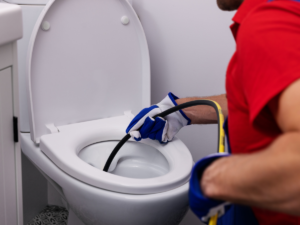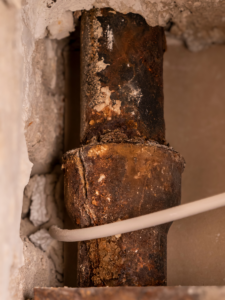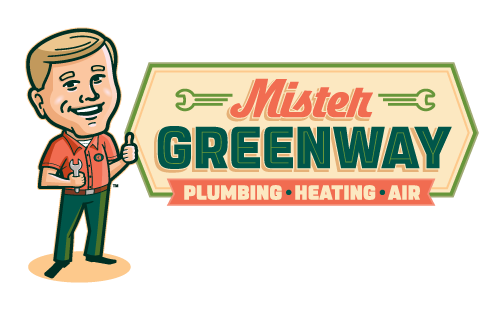 Dealing with clogged pipes can be a real headache. Whether it’s a slow drain or a complete blockage, homeowners often search for effective solutions. Hydro jetting, a high-pressure water cleaning method, has emerged as an eco-friendly and chemical-free option. But if your pipes are older, you might wonder: is hydro jetting safe for old pipes?
Dealing with clogged pipes can be a real headache. Whether it’s a slow drain or a complete blockage, homeowners often search for effective solutions. Hydro jetting, a high-pressure water cleaning method, has emerged as an eco-friendly and chemical-free option. But if your pipes are older, you might wonder: is hydro jetting safe for old pipes?
We’ll explore the safety of hydro jetting for older pipes, the factors you should consider, and what alternatives might be better suited for older plumbing systems. We’ll cover everything you need to know to make an informed decision about your pipes.
Key Takeaways
- Hydro jetting uses high-pressure water to clear pipes but may not be suitable for old or fragile pipes.
- A professional assessment is essential to determine if your pipes can handle hydro jetting.
- Older pipe materials, like cast iron and clay pipes, have specific vulnerabilities that hydro jetting might make worse.
- Alternatives like snaking might be better for less severe blockages in old pipes.
- Regular maintenance and pipe inspections are crucial to avoiding major issues.
What Is Hydro Jetting?
Hydro jetting is a powerful method used to clean pipes using a stream of high-pressure water. The process involves water being pressurized up to 35,000 psi.
Before hydro jetting, plumbers often use drain cameras to inspect the pipes. This helps in precisely identifying blockages and assessing the pipe’s condition.
Once plumbers check the plumbing system, they use a specialized nozzle to spray stream of water on the pipe walls. This action not only clears blockages but also removes surface buildup. The long hose allows the water to reach hard-to-access areas, making it an effective solution for cleaning.
Thats why hydro jetting is oftentimes more effective than traditional methods like snaking. Hydro jetting cleans pipes completely instead of just making a hole in the blockage.
Moreover, hydro jetting is eco-friendly. It doesn’t rely on hazardous chemical drain cleaners. This makes it a great option for maintaining clean and functional pipes without harming the environment.
Is Hydro Jetting Safe for Old Pipes?
Hydro jetting is effective, but it comes with risks, especially for older pipes. High-pressure water can expose weaknesses in aging plumbing systems. If your pipes are already fragile or deteriorating, the force of the water could lead to leaks or further damage.
Signs of aging pipes include slow drainage, unpleasant odors, and visible rust or corrosion.
Here’s a breakdown of how different pipe materials respond to hydro jetting:
- Copper Pipes: These are prone to corrosion and pinhole leaks over time. Hydro jetting can exacerbate these issues if the pipes are already weakened.
- PVC & ABS Pipes: These materials can become brittle as they age, especially in cooler temperatures. High-pressure water might cause cracks or breaks in these pipes.
- Cast Iron Pipes: Cast iron is susceptible to rust and can become brittle. Hydro jetting might worsen these problems, leading to reduced flow or pipe collapse.
- Clay Pipes: Clay pipes crumble over time and are vulnerable to tree root invasions. Hydro jetting may not only fail to remove all blockages but could also worsen existing pipe damage.
It’s important to have a professional assess the condition of your pipes before deciding on hydro jetting. They can determine if the pipes are in good enough shape to handle the high-pressure cleaning.
When Are Old Pipes Unsafe for Hydro Jetting?
 Older plumbing systems typically refer to pipes that are over 50 years old. In many older homes, materials like cast iron and clay were commonly used.
Older plumbing systems typically refer to pipes that are over 50 years old. In many older homes, materials like cast iron and clay were commonly used.
These materials have specific vulnerabilities:
- Cast Iron: Prone to rust and corrosion, which can lead to blockage and breakage.
- Clay: Can deteriorate and become vulnerable to root intrusion.
Older pipes often have foundational issues or signs of wear that make them less resilient. Professional inspections are necessary to evaluate if these pipes can handle modern cleaning methods like hydro jetting.
Alternatives to Hydro Jetting to Avoid Pipe Damage
When dealing with old pipes, you might want to consider alternatives to hydro jetting. Comparing hydro jetting with traditional snaking:
- Hydro Jetting: Uses high-pressure water to clear blockages but can stress fragile pipes.
- Snaking: Involves manually pushing or extracting clogs. It offers more control, reducing the risk of damaging already weakened pipes.
Snaking can be a safer option for pipes that show early signs of aging. It allows plumbers to target the clog directly without the risk of over-stressing the pipe’s surface.
When to Use a Snake
Snaking might be preferable in the following situations:
- Localized Clogs: For blockages in isolated areas, snaking offers precision.
- Early Aging Signs: Pipes showing initial signs of wear but not severely damaged might fare better with snaking.
- Experienced Hands: A skilled plumber can use a snake to handle minor blockages with greater care.
When to Replace Old Pipes
Sometimes, hydro jetting and snaking are not enough. Old pipes with significant damage or brittleness should be replaced. Regular maintenance can help avoid reaching this point, but when damage is evident, replacement becomes necessary.
A professional assessment will help determine if pipe replacement is needed. Newer, more durable pipes can help prevent future issues and reduce the need for aggressive cleaning methods.
When To Get Hydro Jetting Services?
Hydro jetting is a great option for regular maintenance. Recommended intervals for hydro-jetting vary, but yearly or bi-yearly cleanings can keep your pipes in good shape. For businesses or homes with frequent clogs, more frequent hydro-jetting may be beneficial.
Specific scenarios where hydro jetting is particularly useful include severe sewer line clogs. Unlike snaking, which might leave some debris behind, hydro jetting can thoroughly clear blockages and help prevent future issues.
Mister Greenway Nashville, TN Provides Hydro Jetting Services
 For reliable hydro jetting and other plumbing services, Mister Greenway in Nashville, TN, has got you covered. Our team of experienced plumbers will assess the condition of your pipes and recommend the best cleaning method.
For reliable hydro jetting and other plumbing services, Mister Greenway in Nashville, TN, has got you covered. Our team of experienced plumbers will assess the condition of your pipes and recommend the best cleaning method.
We are here to help you maintain your plumbing system with the care and expertise you deserve. Contact Mister Greenway for all your plumbing needs—we have your back!
Final Thoughts
Hydro jetting is a powerful tool for pipe cleaning, but it requires caution with older or damaged pipes. Snaking offers a gentler alternative for less severe blockages in aging pipes.
Always seek professional advice to ensure you choose the best method for your plumbing system. Reach out to Mister Greenway of Nashville, TN, for expert guidance and top-notch plumbing services.
FAQs
What is hydro jetting?
Hydro jetting uses high-pressure water to clean pipes. It effectively removes blockages and buildup, but it requires careful consideration if the pipes are old or damaged.
Can hydro jetting damage old pipes?
Yes, high-pressure water can expose weaknesses in old pipes. Pipes made from materials like cast iron, clay, or brittle PVC may be at risk.
How can I tell if my pipes are too old for hydro jetting?
Look for signs such as slow drainage, bad odors, or visible rust. A professional inspection can determine if your pipes can handle hydro jetting.
What are some alternatives to hydro jetting for old pipes?
Snaking is a gentler method that can be safer for older pipes. It manually clears blockages without the high pressure that can stress fragile pipes.
How often should I have my pipes cleaned?
Regular maintenance, including hydro jetting, is recommended yearly or bi-yearly, depending on your plumbing system’s condition and usage.
Why is a professional assessment important?
Professionals can evaluate the condition of your pipes and recommend the best cleaning method. This helps prevent potential damage and ensures effective results.
